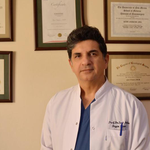













Why Hair Transplant surgery in Turkey?
Turkey relies on current cosmetic surgery procedures and keeps up with technological advancements and all the newest in the field of plastic surgery, providing services at more affordable prices in the leading worldwide cosmetic facilities that use the most up-to-date techniques.
What is a Hair Transplant and How Does It Work?
A hair transplant is a procedure that involves transplanting hair to parts of the scalp that are bald or thinning. It's also known as hair restoration or hair replacement, and it's normally reserved for those who have exhausted all other options for hair loss treatment.
What is the procedure for grafting?
The most prevalent type of hair transplant surgery is hair grafting. A healthcare provider removes little bits of healthy hair from the scalp. They sometimes use a small, round punch to remove skin that has 10 to 15 hairs on it. These grafts were once known as "hair plugs." One to two hairs are included in micro-grafts.
The treatment may take many hours. The majority of patients remain awake during the procedure, however, they are given medicine to numb the scalp. Depending on how much hair your provider needs to move, you may require many operations. Between operations, your scalp will need to recuperate for a few months.
What are the potential side effects of hair transplant surgery?
Allergic reaction to anesthesia
Excessive blood loss
Failed grafts or flaps
Infection
Loss of feeling on your scalp
Scarring
What are the side effects of hair transplant surgery?
Side effects of hair transplant surgery are usually temporary.
You may experience the following issues on your scalp, at the donor site, or where the new hair is:
Scabs or crust
Itching
Loss of feeling
Throbbing or pain
Swelling
Tightness.
What does e-TurkishDoctors Healthcare Services offer patients?
How many specialists are there and what accreditation's have been awarded to e-TurkishDoctors Healthcare Services?
Hair Transplantation, also known as hair restoration surgery, is the surgical process of moving hair follicles from one part of the body that is rich in hair (known as a donor site) and embedding them at the the bald area of the head (recipient site). The medical course of action that aims at addressing hair loss issues and improving aesthetics. While there are many causes of hair loss, the most common reason, especially for men, is genetics. Hereditary hair loss as men age is the number one leading factor of baldness.
It is a minimally invasive procedure, performed under local anesthetic and is most commonly used to treat male baldness, but the technique can also be used to restore eyelashes, eyebrows, beard hair and to fill in scars. The procedure usually lasts between 4 to 8 hours, depending on the number of grafts needed. This procedure is a long-term solution to hair loss, with most patients experiencing significant improvement in hair growth after six months to a year.
Your scalp will continue to be sensitive to pain for a few days, during which time you should continue to take the medications provided by the doctor. On top of the pain killers and anti-inflammatory meds, you may also be given antibiotics to lessen the risk of infection, as uncommon as this may be.
You should expect to return to work and your daily routine, including exercise, after 5 days. However, the signs of a hair transplant will remain for at least another 2-3 weeks, at which point the newly transplanted hairs will start to fall out - but don't be alarmed! This is to be expected as you've just had a follicle extraction, so dead hair will simply make way for new hair over the coming weeks and months.
If the average person's hair only grows at a centimeter per month, then it will take some time before you can wear your hair long again. You could expect to display short and consistent hair just 4-6 weeks after the treatment.
The success rate for hair transplants is one of the highest, at 98% and is considered the only truly effective remedy for hair loss.
The effectiveness of Hair Transplant treatments is significantly shaped by the surgeon's expertise who executes the process. A seasoned and competent surgeon employs sophisticated methods to prevent harm to the transplanted hair follicles during the process, which leads to a higher likelihood of success. Additionally, the ability of the surgeon to place the grafts in an attractive manner that resembles natural hair growth further enhances the perceived successfulness of the result.
Beyond the competency of the surgeon, the overall health status and lifestyle choices of the patient greatly impact the treatment's effectiveness. Subpar habits such as excessive smoking and alcohol intake can obstruct the recovery process and influence the result adversely. Illnesses like diabetes can also interfere with the likelihood of success.
Consideration of the donor hair's quality is another aspect that may affect the success of the procedure. Generally, those with robust, plentiful hair in the donor region have a higher success rate as compared to individuals with sparse or poor-quality hair. The availability of more follicles for transplantation yields better results. A detailed examination is carried out before the Hair Transplant to verify the quantity and quality of the donor's hair.



















Why Hair Transplant surgery in Turkey?
Turkey relies on current cosmetic surgery procedures and keeps up with technological advancements and all the newest in the field of plastic surgery, providing services at more affordable prices in the leading worldwide cosmetic facilities that use the most up-to-date techniques.
What is a Hair Transplant and How Does It Work?
A hair transplant is a procedure that involves transplanting hair to parts of the scalp that are bald or thinning. It's also known as hair restoration or hair replacement, and it's normally reserved for those who have exhausted all other options for hair loss treatment.
What is the procedure for grafting?
The most prevalent type of hair transplant surgery is hair grafting. A healthcare provider removes little bits of healthy hair from the scalp. They sometimes use a small, round punch to remove skin that has 10 to 15 hairs on it. These grafts were once known as "hair plugs." One to two hairs are included in micro-grafts.
The treatment may take many hours. The majority of patients remain awake during the procedure, however, they are given medicine to numb the scalp. Depending on how much hair your provider needs to move, you may require many operations. Between operations, your scalp will need to recuperate for a few months.
What are the potential side effects of hair transplant surgery?
Allergic reaction to anesthesia
Excessive blood loss
Failed grafts or flaps
Infection
Loss of feeling on your scalp
Scarring
What are the side effects of hair transplant surgery?
Side effects of hair transplant surgery are usually temporary.
You may experience the following issues on your scalp, at the donor site, or where the new hair is:
Scabs or crust
Itching
Loss of feeling
Throbbing or pain
Swelling
Tightness.
What does e-TurkishDoctors Healthcare Services offer patients?
How many specialists are there and what accreditation's have been awarded to e-TurkishDoctors Healthcare Services?












Why Hair Transplant surgery in Turkey?
Turkey relies on current cosmetic surgery procedures and keeps up with technological advancements and all the newest in the field of plastic surgery, providing services at more affordable prices in the leading worldwide cosmetic facilities that use the most up-to-date techniques.
What is a Hair Transplant and How Does It Work?
A hair transplant is a procedure that involves transplanting hair to parts of the scalp that are bald or thinning. It's also known as hair restoration or hair replacement, and it's normally reserved for those who have exhausted all other options for hair loss treatment.
What is the procedure for grafting?
The most prevalent type of hair transplant surgery is hair grafting. A healthcare provider removes little bits of healthy hair from the scalp. They sometimes use a small, round punch to remove skin that has 10 to 15 hairs on it. These grafts were once known as "hair plugs." One to two hairs are included in micro-grafts.
The treatment may take many hours. The majority of patients remain awake during the procedure, however, they are given medicine to numb the scalp. Depending on how much hair your provider needs to move, you may require many operations. Between operations, your scalp will need to recuperate for a few months.
What are the potential side effects of hair transplant surgery?
Allergic reaction to anesthesia
Excessive blood loss
Failed grafts or flaps
Infection
Loss of feeling on your scalp
Scarring
What are the side effects of hair transplant surgery?
Side effects of hair transplant surgery are usually temporary.
You may experience the following issues on your scalp, at the donor site, or where the new hair is:
Scabs or crust
Itching
Loss of feeling
Throbbing or pain
Swelling
Tightness.
What does e-TurkishDoctors Healthcare Services offer patients?
How many specialists are there and what accreditation's have been awarded to e-TurkishDoctors Healthcare Services?
CONTACT SUCCESSFUL